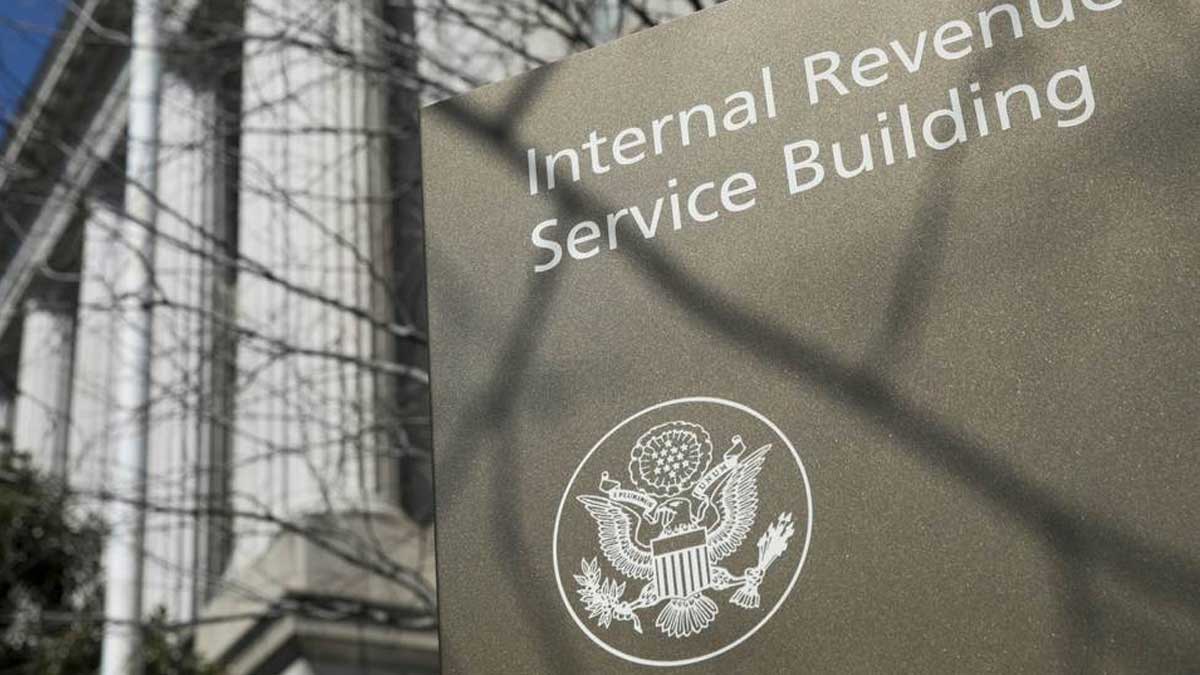- Home
- Billionaires
- Investing Newsletters
- 193CC 1000
- Article Layout 2
- Article Layout 3
- Article Layout 4
- Article Layout 5
- Article Layout 6
- Article Layout 7
- Article Layout 8
- Article Layout 9
- Article Layout 10
- Article Layout 11
- Article Layout 12
- Article Layout 13
- Article Layout 14
- Article Sidebar
- Post Format
- pages
- Archive Layouts
- Post Gallery
- Post Video Background
- Post Review
- Sponsored Post
- Leadership
- Business
- Money
- Small Business
- Innovation
- Shop
Recent Posts
IRS Targets Tax Loophole for High Earners

The Internal Revenue Service (IRS) has announced its intention to tighten regulations on a popular tax loophole used by high earners. This loophole involves a practice known as “related party basis shifting,” where assets are transferred to affiliated legal entities to secure tax deductions and revalue assets at a lower tax rate.
The IRS has identified this practice as a way for high earners to take advantage of tax deductions and avoid paying taxes. The agency attributes the surge in such practices to a staffing shortfall and budget deficit at the IRS, which have hampered its ability to oversee complex business structures.
To address this issue, the IRS plans to require taxpayers to report any basis shifting that exceeds $5 million in tax benefits. It also intends to create new teams of auditors to monitor such partnerships and challenge those that lack economic substance. These measures are estimated to increase tax collections by $50 billion over the next decade.
However, not everyone agrees with the IRS’s characterization of basis shifting. Some, like lawyer Robert Kovacev, argue that it is a legitimate tax planning tool allowed by Congress. Kovacev predicts that the new regulations will face legal challenges.
The initiative to crack down on high-earner tax loopholes is part of a broader effort by the Biden administration. The Inflation Reduction Act, enacted in 2022, provided an additional $80 billion in IRS funding over the next 10 years, with a focus on ensuring tax compliance among the wealthy. In February, the IRS announced plans to target private jet users who write off personal travel as a business expense, as well as to pursue high earners and large business partnerships delinquent on their taxes.
Overall, the IRS’s crackdown on tax loopholes is aimed at reducing the $160 billion that the top 1% of earners save on taxes through loopholes like basis shifting, compared to what they actually owe.
Recent Posts
Categories
- 193cc Digital Assets2
- 5G1
- Aerospace & Defense46
- AI37
- Arts3
- Banking & Insurance11
- Big Data3
- Billionaires449
- Boats & Planes1
- Business328
- Careers13
- Cars & Bikes76
- CEO Network1
- CFO Network17
- CHRO Network1
- CIO Network1
- Cloud10
- CMO Network18
- Commercial Real Estate7
- Consultant1
- Consumer Tech180
- CxO1
- Cybersecurity68
- Dining1
- Diversity, Equity & Inclusion4
- Education7
- Energy8
- Enterprise Tech29
- Events11
- Fintech1
- Food & Drink2
- Franchises1
- Freelance1
- Future Of Work2
- Games141
- GIG1
- Healthcare78
- Hollywood & Entertainment186
- Houses1
- Innovation42
- Investing2
- Investing Newsletters4
- Leadership65
- Lifestyle11
- Manufacturing1
- Markets20
- Media193
- Mobile phone1
- Money13
- Personal Finance2
- Policy567
- Real Estate1
- Research6
- Retail1
- Retirement1
- Small Business1
- SportsMoney33
- Style & Beauty1
- Success Income1
- Taxes2
- Travel10
- Uncategorized8
- Vices1
- Watches & Jewelry2
- world's billionaires418
Related Articles
Trump Moves $4B Stake in Truth Social Parent, Stock Drops 6%
Donald Trump recently transferred his 57% stake in Trump Media & Technology...
By 193cc Agency CouncilDecember 20, 2024House Rejects Trump-Backed Funding Bill, Shutdown Looms
The U.S. House of Representatives rejected a new government funding bill on...
By 193cc Agency CouncilDecember 20, 2024Trump Named Time’s Person of the Year for Second Time
On Thursday, Time magazine honored Donald Trump as its “Person of the...
By 193cc Agency CouncilDecember 12, 2024Meta Donates $1 Million to Trump’s Inaugural Fund
Meta, the parent company of Facebook and Instagram, has confirmed a $1...
By 193cc Agency CouncilDecember 12, 2024















Leave a comment